# General Setup
The Oracle Fusion Cloud connector is metadata based connector that fetches input and output schema related to a chosen object at design time. Our connector supports the following actions and triggers today -
# Actions
- Create record
- Delete record
- Get record
- Search records
- Search records using advanced query
- Update record
- Upsert record
- Custom action
# Triggers
- New record (Batch)
- New record
- New/updated record (Batch)
- New/updated record
# Object Setup
Choosing any action or trigger leads to the setup section which showcases the object selection at the very beginning, which is key to setting up the action or the trigger. Upon selecting a specific object to work with (for example, Invoice or Receivable Credit Memo), the action/trigger then fetches all input fields relevant to the specific chosen object.
Upon successful fetch, the inputs of the specific objects are populated as shown below
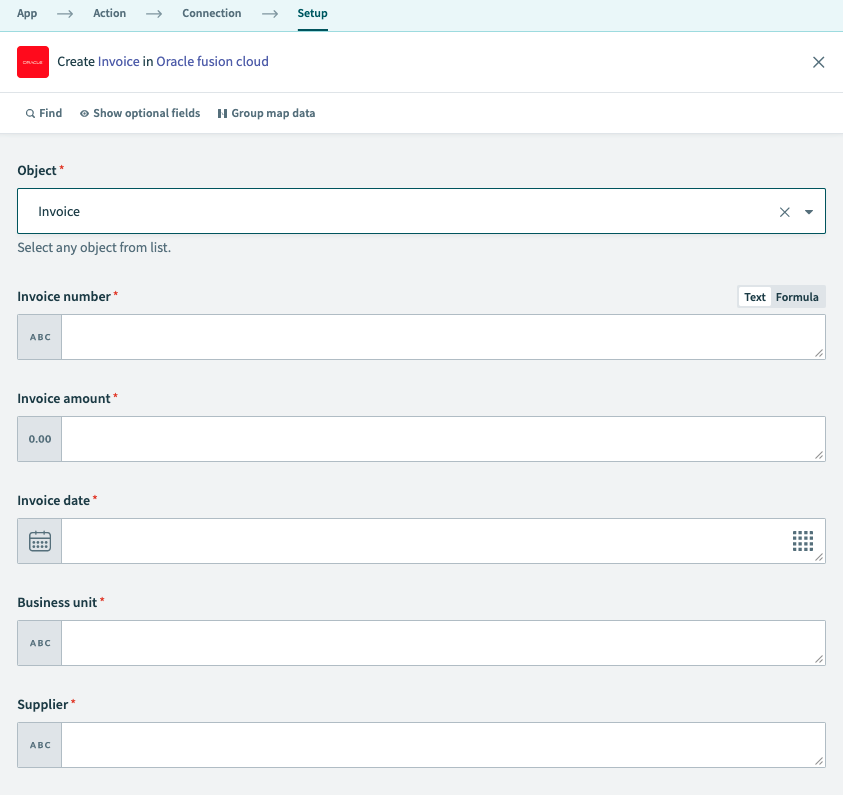 Object selection populates the fields in the action
Object selection populates the fields in the action
If you do not have access to the specific object resource in the Oracle Fusion Cloud (For example, an object from HCM module, which is not enabled in your plan), then a 403 Forbidden error is shown in the action/trigger
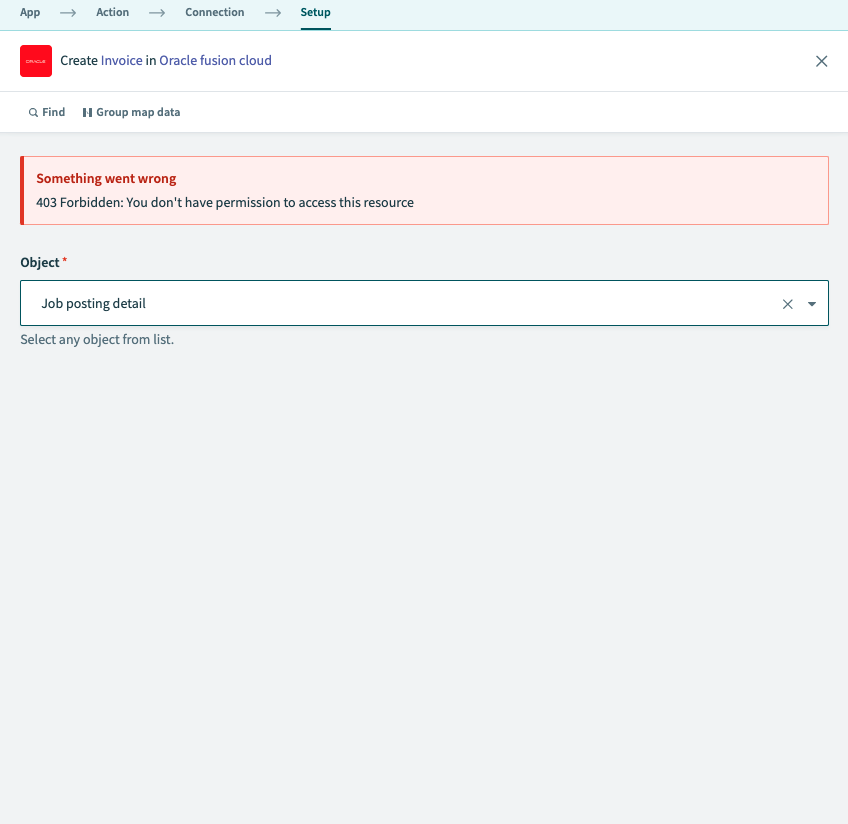 Error populating the fields of the specific object
Error populating the fields of the specific object
The populated fields include both the main object properties, as well as child object properties. For example, Invoices includes main attributes such as Invoice number, Business unit, Invoice amount and so on, and it also has child objects such as Invoice Lines, Invoice installments, Attachments and so on.
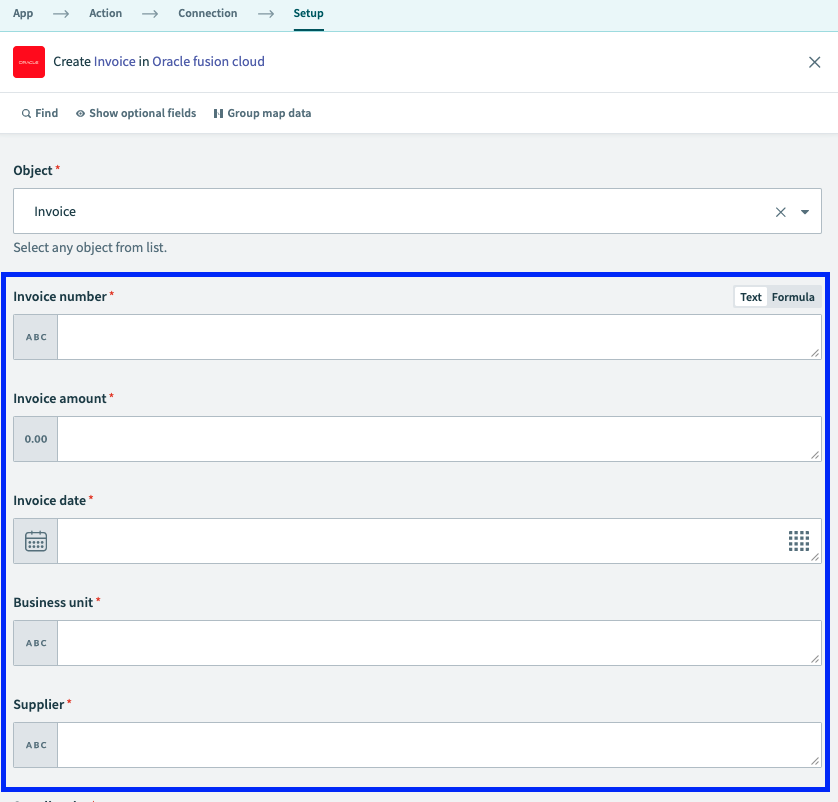 Main attributes under Invoice
Main attributes under Invoice
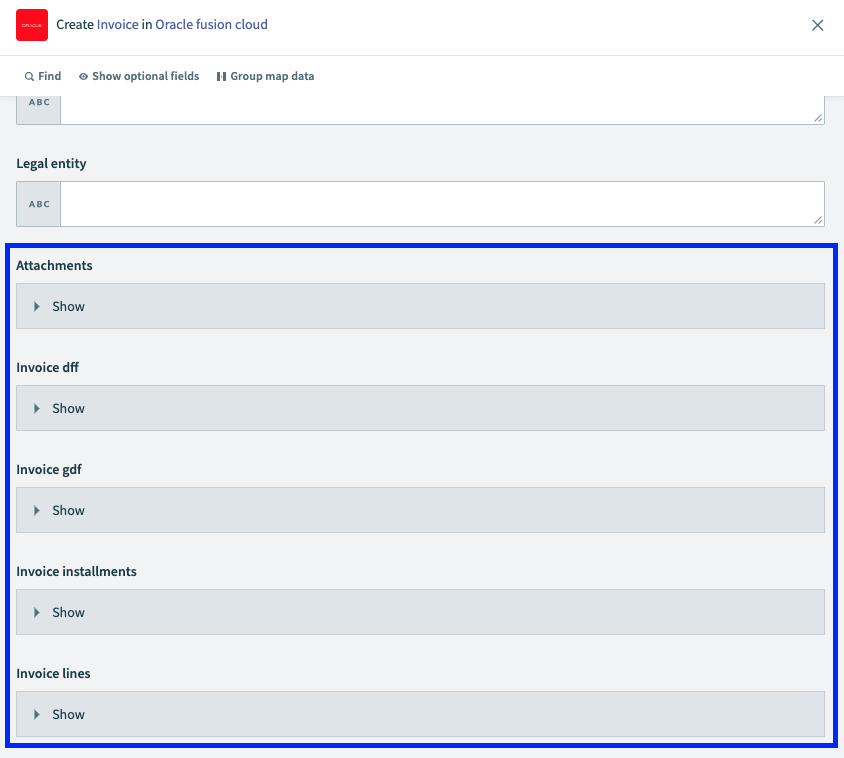 Child objects under Invoice
Child objects under Invoice
Each of the child objects accepts a list input, this is useful when you have a list of items from an upstream system that you want to pass on to the child object. Example - Passing list of product line items from Salesforce to Invoice Line child object.
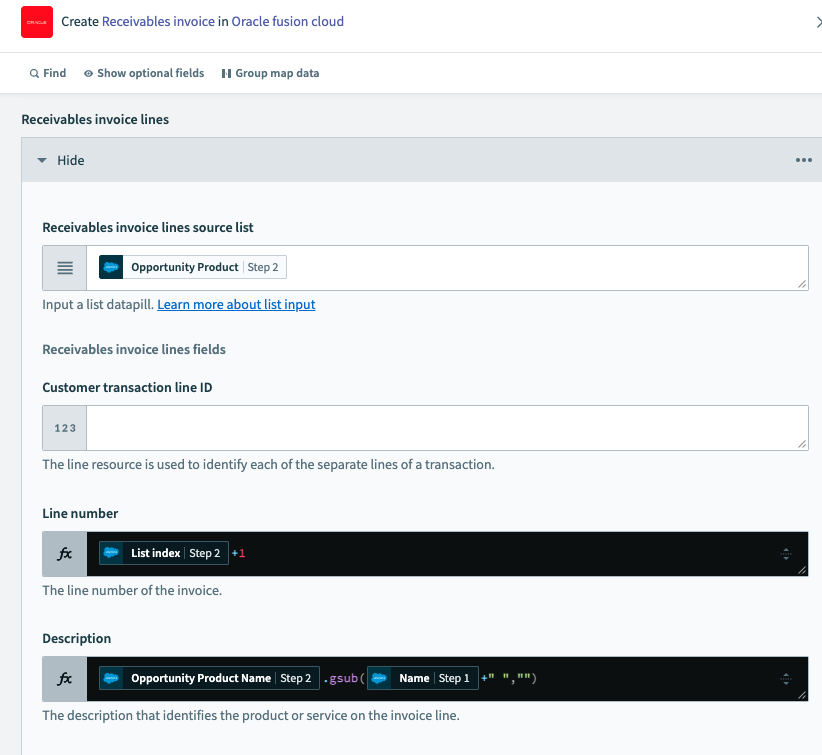 Passing list datapill from Salesforce to the child object Invoice lines
Passing list datapill from Salesforce to the child object Invoice lines
If you want to input the child objects like Invoice Lines manually instead of passing a list input, you can change the list to a fixed list and add the list items one by one as well.
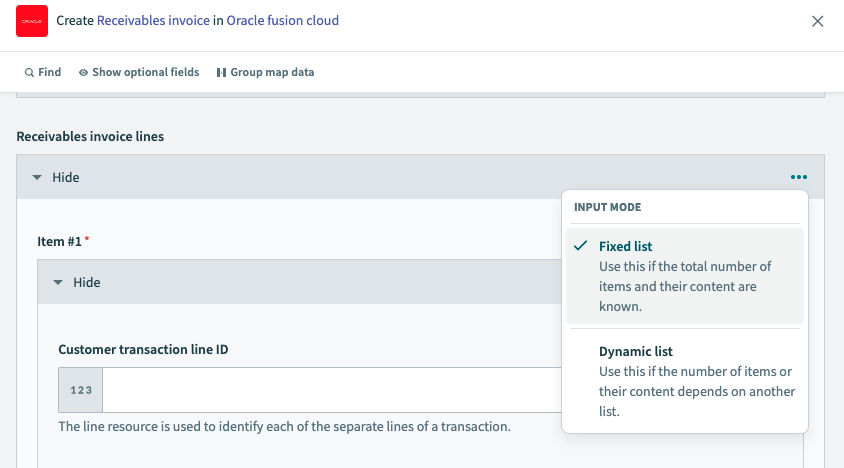 Fixed list setup under child object
Fixed list setup under child object
Child objects can further have more grand child objects under them, which can also be accessed in the same way as we did for Child objects. In this way we can add inputs to any depth for a particular record.
Last updated: 3/29/2023, 2:00:59 PM